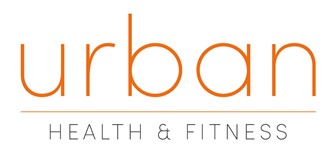We have all most likely seen newsfeeds, and clips on social media of people performing random acts of kindness. The definition of a random act of kindness or RAOK is a selfless act performed by kind people to either help or cheer up a random stranger for no other reason than to make them happier. So, what makes a random act of kindness so special and why is it good for us?
Kindness produces Serotonin
Serotonin is the chemical the brain produces to help regulate mood, social behaviour, appetite and digestion, sleep, memory and sexual desire and function. Basically, a RAOK makes you simply feel good, it boosts your body’s healing system and acts as an anti-depressant. A lack of serotonin is widely believed to be the main cause of a lot of depression and anxiety related illnesses, so a boost of Serotonin is always welcome.
But not only does a RAOK produce serotonin in the giver, it also boosts Serotonin levels in the receiver and all those people who witness it whether at the scene or through a video on social media.
Kindness causes a ripple effect.
The RAOK doesn’t just stop with the people who witness it. Studies have shown that someone who witnesses a RAOK is much more likely to perform one themselves and will commonly go through three degrees of separation. This means that friends and family will also benefit from the good mood felt through witnessing a kind act. Kindness has been shown to build stronger family and community ties as receiving a RAOK often inspires people to replicate this act. Kindness has been known to end conflicts, build bridges and inspire people to grow. Surveys have shown that companies who are kind to their employees have greater staff retention and are more productive.
Kindness produces Endorphins
Endorphins are the bodies natural painkillers and they are 3 times more powerful than morphine. Better still endorphins are free, don’t require a prescription, and have no unpleasant side effects. Not only do endorphins block pain but they also produce pleasure. Athletes often talk about an Endorphin rush when their muscles start to ache during a tough run or a hard game. Sportsman in contact sports such as rugby often talk about how feeling pain produces an endorphin rush which numbs the pain until many hours after a game.
Kindness produces Oxytocin
Oxytocin is the love hormone, it’s what we feel when we love someone. Small bursts of oxytocin have been shown to increase social bonding, produces an immediate calming effect, increase trust and generosity, strengthens the immune system and boosts virility. It has been often though that oxytocin is just created when in a loving relationship or having sex. However new studies have found that Oxytocin is produced whenever two people make a connection no matter how brief.
Barbara Fredrickson, the psychologist best known for her work on positive emotions, uses the phrase “micro-moments of love” in which she claims that whenever two people connect with each other they experience a momentary feeling of love. This can be two complete strangers striking up a conversation or someone performing a RAOK to another person.
Kindness reduces Aging
Kindness process twice the amount of DHEA which slows down the act of aging. Kindness also reduces cortisol, the stress hormone, by 23%. Basically, people who regularly perform RAOK not only live longer but their lives are less stressful. Sonya Lyubomirsky, a leading researcher on happiness, cites kindness as one of the key drivers to living a happier lifestyle. Her studies have shown that kind people find it easier to find and perform tasks that make them happy and appreciate their lifestyle and surroundings a lot more.

